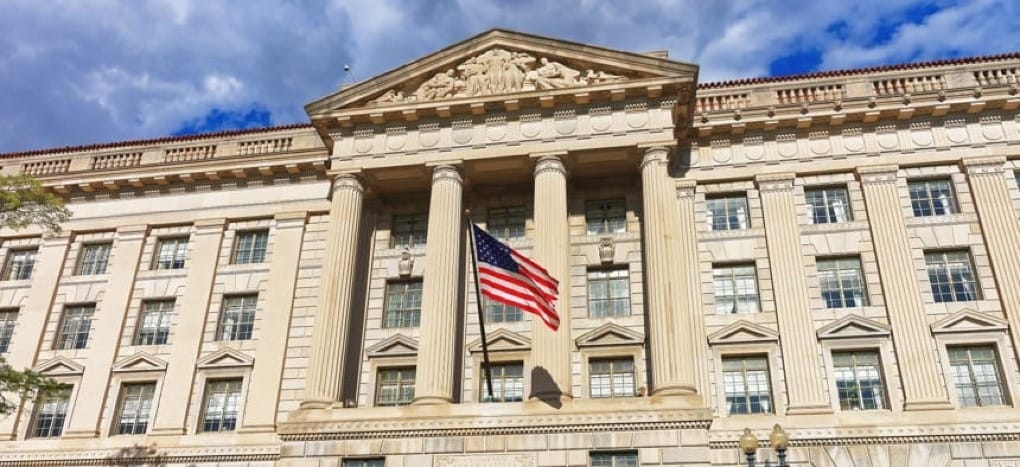FirstNet Modified Contract to Help AT&T Meet Milestones, Says Report
Commerce Department inspector general says changes allowed AT&T to meet nationwide coverage metrics, instead of state-by-state requirements.
Michael D. Melero

WASHINGTON, July 9, 2024 – A newly-relevant report by an inspector general found that the Commerce Department’s FirstNet Authority modified AT&T's contract multiple times to help the company meet milestones needed to receive payment.
The report, by the Commerce Department inspector general, was released on May 30. The office also found that AT&T’s contract was changed even though AT&T had failed to fulfill the original state-by-state coverage metrics and device connection requirements.
In responding to the inspector general report, FirstNet justified the contractual changes and said its doing so “accounted for the evolution of technology and aligned adoption requirements with the build timeframes that supported it.”
The report is newly relevant because of increased scrutiny around the FCC’s consideration of a proposal to provide an additional 50 megahertz of mid-band spectrum to FirstNet. The spectrum has been valued at more than $14 billion.
Regarding the inspector general report, FirstNet said that it “made careful and calculated decisions in modifying the contract.” The agency also noted that the “Office of Inspector General’s field work for the audit report did not include the actual end results of the initial 5-year buildout.”
In a statement to Broadband Breakfast, AT&T stated that it “understand[s] and welcome[s] this oversight,” but noted that no other wireless network is subject to such robust levels of scrutiny and accountability.
The company also said that it had “met and exceeded contractual obligations on coverage area and device connections,” and that FirstNet now has more than six million connections and 28,000 public safety agency and organization subscribers.
What the report found
The Inspector General’s study conducted the report to determine whether the FirstNet Authority – a wireless broadband network within the U.S. Department of Commerce, created through a collaboration between the federal government and AT&T – had been ensuring that AT&T was achieving its goals for device connections and network coverage targets throughout the country.
The IG is a government role within federal agencies whose role is to audit, investigate, and evaluate activities and operations within other government agencies. Its primary objectives are to ensure efficiency, effectiveness, and compliance with laws and regulations.
The report raised significant several questions about the FirstNet Authority's contract management and its implications for public safety communications, causing debate over the decision to allow AT&T to meet nationwide coverage metrics instead of state-by-state requirements.
AT&T signed a 2017 contract to deploy a mobile network for public safety agencies and first responders. The original contract required AT&T to meet six different milestones and coverage metrics on a state-by-state basis, aiming to achieve at least 50 percent in buildouts of device connection targets for each state and territory within five years after signing the contract.
In January 2022, AT&T provided written notice to the FirstNet Authority indicating that it was at risk of not meeting device connection targets for several states within the required timeframe, according to IG.
AT&T not on track to meet targets, said report
The report found that AT&T was not on track to meet its targets based on the company's reports. Subsequently, the FirstNet Authority told the company to stop issuing reports, stating that it was too early in the buildout process to expect AT&T to meet its targets.
While the reports provided details about the contract modifications, the dollar amounts were redacted.
In order to enable AT&T to achieve its milestones more easily and receive payment for early coverage completion, the FirstNet Authority altered the contract, changing the connection target requirements from a state-by-state basis to nationwide coverage metrics as proposed by AT&T. They also delayed and reduced coverage and connection target requirements due to AT&T's nonperformance.
The IG expressed concerns about allowing AT&T to dictate how it would meet the coverage milestones, including how and when it provided services. This approach with nationwide coverage metrics, it noted, could have left states underserved because AT&T could achieve coverage milestone requirements regardless of the progress made in each state's buildout. In contrast, the original state-by-state coverage metrics would have ensured coverage across all states and territories.
“When we reviewed AT&T’s reported device connection targets, we found that without the modification, AT&T would not have met the originally contracted state-by-state requirements for 34 states and one territory,” the inspector general report said. They also suggested that by changing the target to a number that AT&T had achieved once in the past, the company would have already met its device connection target requirements.
Additionally, the report noted that a contract change allowed FirstNet Authority to waive approximately $38.4 million in liquidated damages due from AT&T.
Other concerns about FirstNet
Other ISPs have shared similar concerns, mainly centering on FirstNet’s contractual relationship with AT&T, the use of the network for non-emergency purposes, and potential cybersecurity risks. These concerns arose when the Federal Communications Commission renewed FirstNet Authority’s license to operate with AT&T in the 700 MHz public safety band in 2023.
The initial construction of the network was completed in December 2023, connecting more than 27,000 public safety agencies. According to the report, this number indicates that AT&T was behind in meeting its buildout targets for device connections.
Verizon CEO Hans Vestberg met with FCC Chairwoman Jessica Rosenworcel on June 28 to lobby her against the FirstNet spectrum allocation, arguing that it “would result in a substantial windfall, particularly at a time when the Commission and other policymakers are working to develop a pipeline for mid-band spectrum.”
AT&T added that major public safety groups, including the Fraternal Order of Police, the International Association of Fire Fighters, and the International Association of Chiefs of Police supported the FCC’s efforts on the public safety spectrum.









Member discussion